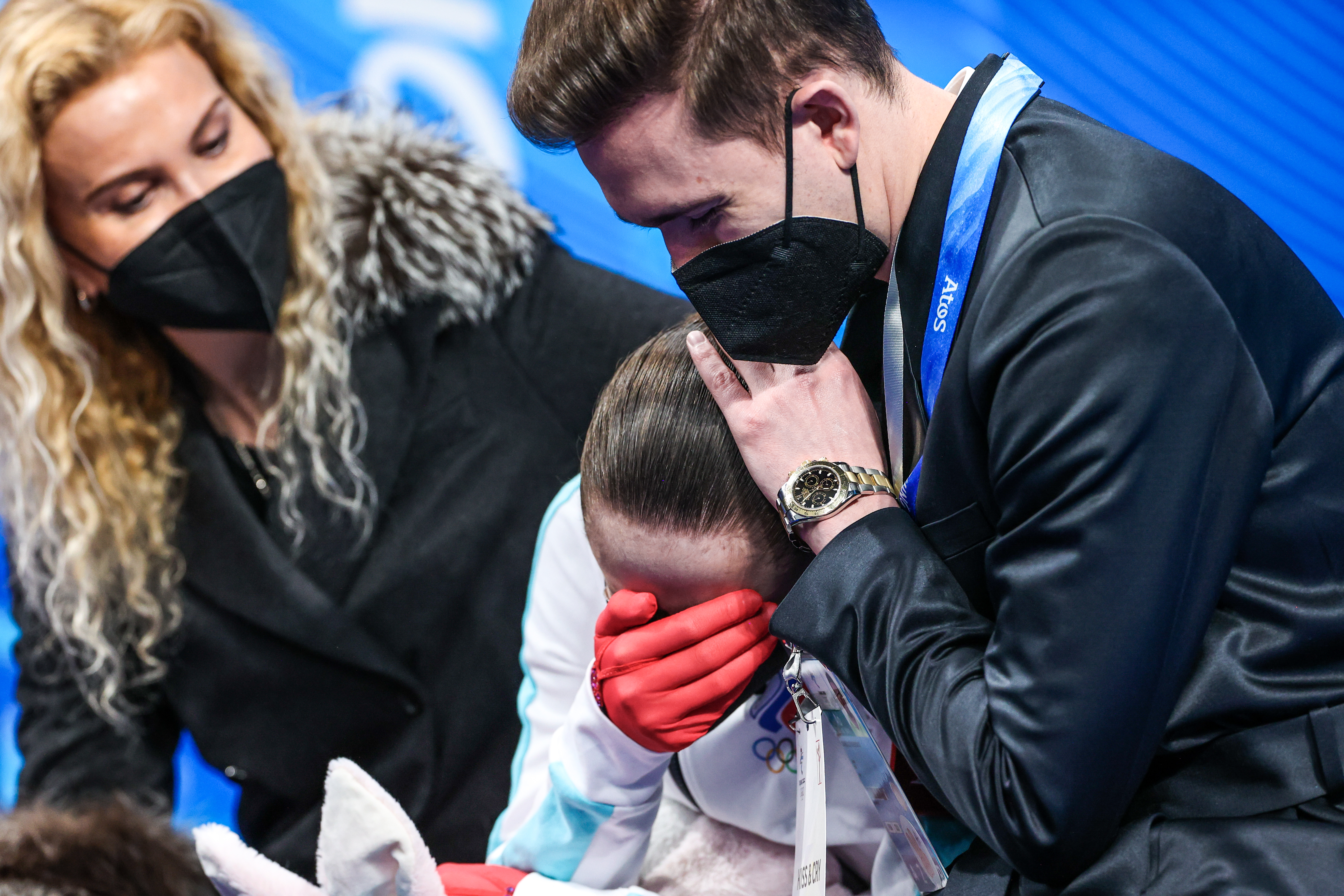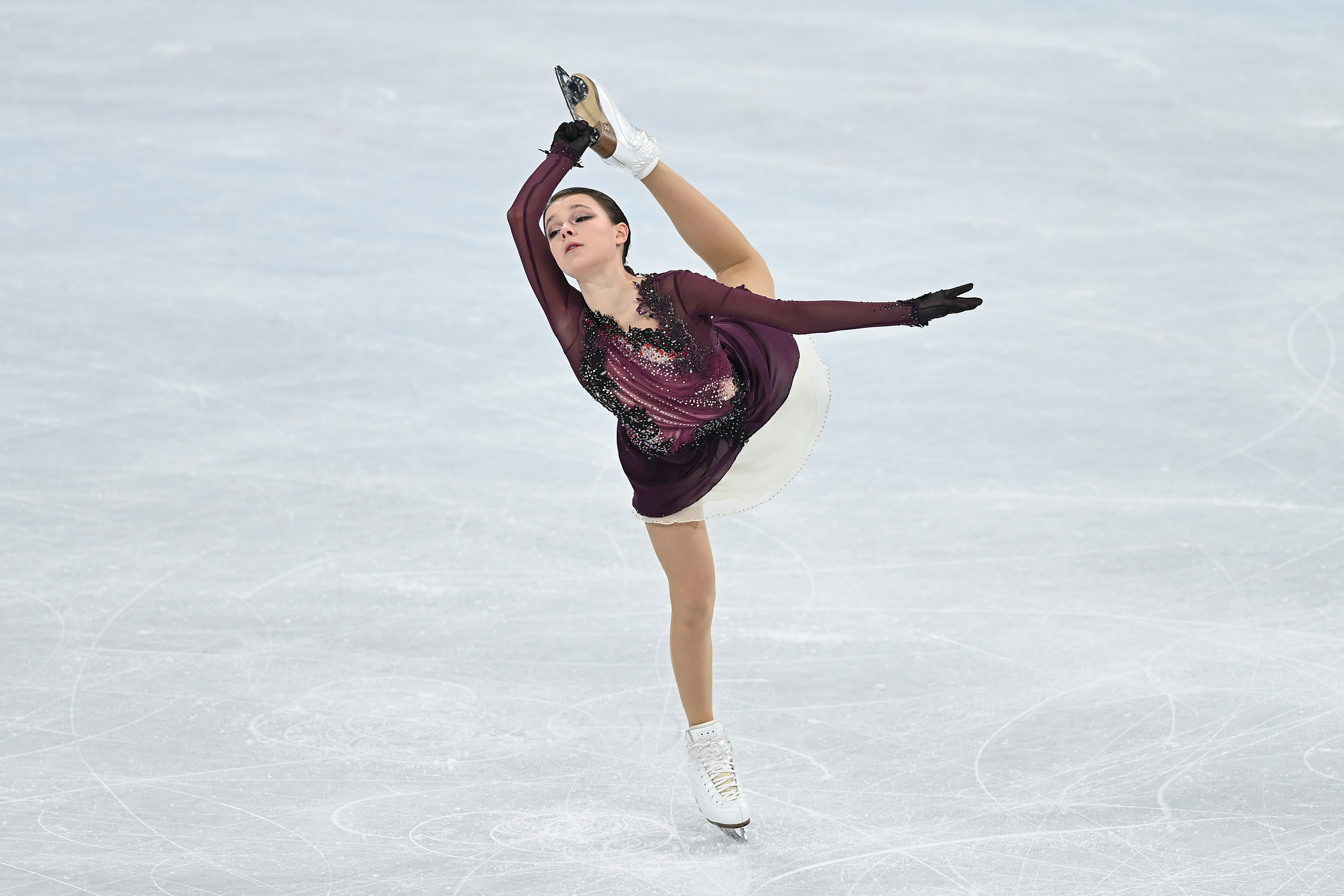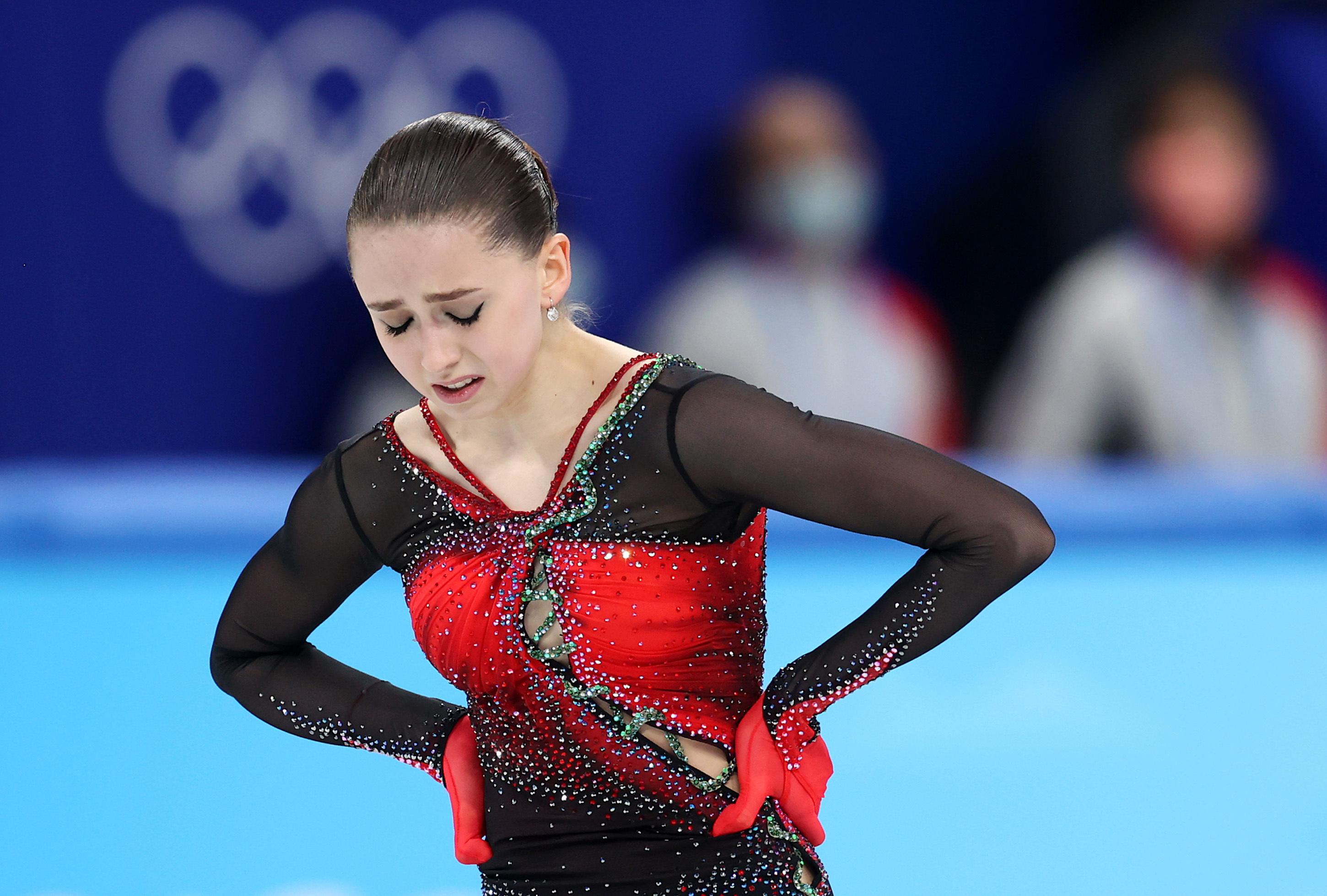Seen as the overwhelming favorite to win the women’s individual event, Russian figure skater Kamila Valieva stunned when she stumbled through her free skate routine, a mistake-filled end to her controversial Olympics.
The 15-year-old Valieva last week landed the first quadruple jumps by a woman at the Olympics and helped the Russians (competing as the Russian Olympic Committee) win gold in the team event. But it soon came to light that Valieva had in December tested positive for a banned heart medication, throwing the rest of the women’s figure skating program into turmoil until the end, with once-favorite Valieva failing to make the podium at all.
Watch NBC6 free wherever you are
>Below, a look back at the doping saga that roiled women’s figure skating at the 2022 Winter Olympics.
On Feb. 7, Kamila Valieva and the ROC figure skaters place first in the team event.
Get local news you need to know to start your day with NBC 6's News Headlines newsletter.
>On Feb. 8, it is revealed that Valieva had tested positive for trimetazidine at the Russian Figure Skating Championships in St. Petersburg, Russia, on Dec. 25, according to the International Testing Agency, which oversees the Olympic drug-testing program.
Trimetazidine, sometimes called TMZ, was added to a World Anti-Doping Agency (WADA) prohibited list in 2014. Normally prescribed to treat angina — chest pain from reduced blood flow to the heart — it can have athletic benefits as well. For sports, it could potentially help an athlete perform at a higher heart rate for a longer period of time.
WADA lists it as a "metabolic modulator" and prohibits it at all times, in and out of competition.
After news of the test result, Valieva is provisionally suspended by the Russian Anti-Doping Agency (RUSADA). She challenges the decision, and it is reversed a day later.
On Feb. 9, the medal ceremony for the team figure skating competition at the Beijing Winter Olympics is postponed by the International Olympic Committee.
On Feb. 13, the Court of Arbitration for Sport meets to determine whether Valieva should be allowed to continue at the Beijing Games while anti-doping officials conduct a full investigation into the positive test result.
On Feb. 14, CAS issues its ruling, stating that Valieva would be allowed to skate in the women’s individual amid the ongoing investigation, in part because as a minor she is a “protected person” subject to different rules than adult competitors.
Whether she and the ROC will be able to keep their team gold medal hasn’t been decided; that issue will be dealt with in a separate, longer-term investigation led by RUSADA, which took the sample in St. Petersburg, according to The Associated Press. WADA will have the right to appeal any ruling by RUSADA, it added.
In a statement after the decision, the International Olympic Committee says that due to the “inconclusive situation,” no medal ceremonies involving Valieva would take place during the Beijing Games — meaning that if she placed in the top three in women’s individual, none of the top three would get their medals until the larger investigation is complete.
Valieva returns to training and makes her first comments to Channel One Russia after the court’s decision, saying she is happy about the decision but “emotionally tired,” and the last couple of days have been “very difficult.”
More Olympic Figure Skating Coverage
On Feb. 15, Valieva skates in the women’s short program and finishes in the lead just ahead of ROC teammate Anna Shcherbakova, the reigning world champion. Despite a near-flawless performance, an emotional Valieva breaks down in tears and declines to speak to any press after the event.
On Feb. 17, Valieva stumbles through the women’s individual free skate. Shaky on an opening quad salchow, she then steps out on a triple axel and falls altogether on a quad toe loop-triple toe loop combination. She falls again on her other quad toe loop, preventing her from completing a high-scoring combination, and spins out on another jump late in the program — though by that point, her fate is sealed.
Valieva finishes in fourth place, while teammate Shcherbakova delivers a near-perfect performance to leap over the 15-year-old into the top spot. Russian teammate Alexandra Trusova earns a silver medal while Japan's Kaori Sakamoto holds onto bronze.
After Thursday's performances, Shcherbakova says she feels incredibly happy about her gold-medal win but had felt nervous for teammate Valieva from her first jump as it was clear things were difficult.
“I understand perfectly what an athlete feels at those moments,” she said.
Because Valieva didn't make the podium, the women's individual medal ceremony will take place on Friday, Feb. 18, as scheduled. The IOC reiterated its stance earlier this week that no podium ceremonies would be held for events in which Valieva won a medal because of concerns that she could still be banned after a full doping case investigation, according to an Associated Press report.
A decision in the larger case involving the positive test, and resolving whether Russia will get its team gold medal, could take months play out. The outcome of the larger doping investigation could affect other countries' standings in the team event as well: The U.S. is expected to take silver, but if it's decided ROC won't earn gold, other teams will be bumped up.
Team USA skater Karen Chen said she's disappointed to have to leave Beijing without her hardware from the team competition, and heartbroken to not get the Olympic celebration she always imagined.
“I really was looking forward to be on the podium with my teammates and just sharing that moment, and I’m sure I’m not the only one that felt that way,” Chen said. “But what can we do? It’s out of our control and, whatever it is, we just got to go with it and go with the flow. … I think once that everything is over, we’ll definitely try to find a way to celebrate.”
The scandal surrounding the Russian teen has provoked strong reactions from the Olympic skating community.
“It makes me angry that the adults around her weren’t able to make better decisions," said NBC Olympics figure skating analyst Tara Lipinski. She added that Valieva “should not have been allowed to skate in this Olympic event.”
“Thank goodness for all the other medalists to have that moment [on the podium]” Lipinski said. “And to have done it cleanly,” added fellow NBC Olympics analyst Johnny Weir.





